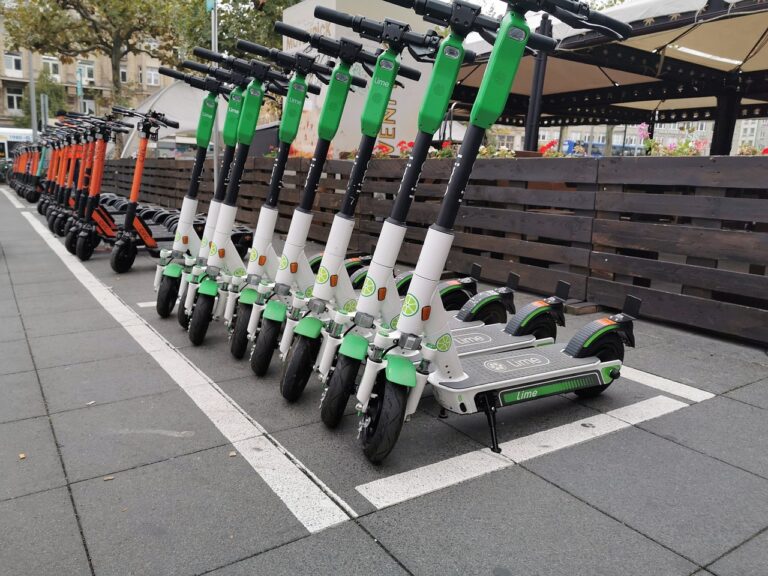Micro-mobility has taken hold in cities. Also due to the pandemic, e-bikes, scooters and other means of micro-mobility have conquered spaces in the city that were unthinkable only a few years ago.
Today they play a major role in sustainable urban mobility.
Table of Contents
Definition of micro-mobility
Micro-mobility includes all those means used to cover short routes and distances mainly in the city. The term micro-mobility refers to mobility ‘characterised by the use of means of transport that are less heavy and bulky and potentially less polluting than traditional means of transport’.
This includes e-bikes (pedal-assisted bicycles) scooters, skateboards and electric scooters. Also hoverboards, segways and monowheels are in the list.
Micro-mobility in cities, growing numbers
The new way of getting around in urban areas is increasingly characterised by the ‘micro’ factor. In a nutshell: micro mobility is increasingly finding its way into the city. McKinsey estimated in 2019 that the shared micro mobility market between China, the European Union and the United States will range from USD 300 to 500 billion in 2030.
The pandemic has radically changed the data on the table. So the same analyst firm the following year assumed, after a downturn in the first period, that micro-mobility would re-emerge and thrive in the long term. “Estimates for 2030 predict a 5 to 10 per cent increase in the number of passenger-kilometres travelled compared to our base case.”
Frost & Sullivan, in its Global Shared Mobility report, notes that the global shared mobility market is set to accelerate and grow.
Driven by the eHailing segment (the booking of a taxi via app), the global gross market value of the sector – which includes ride-hailing, ridesharing, peer-to-peer and traditional car-sharing, mobility-as-a-service and bike-sharing – is expected to double its 2020 value of $305.92 billion. And to reach $608.86 billion.
The growing consumer focus on safety will be one of the reasons for growth, but one of the most significant trends is the renewed strategies of mobility companies towards the adoption of micro-mobility.
Examples of micro-mobility transport means
To cover the last mile in your journey in an environmentally friendly way, there are several solutions available. This by using vehicles that can be integrated with endothermic cars and hybrid or electric cars. Here are some of the best small electric vehicles for micro-mobility.
Electric scooter
The electric scooter is undoubtedly the most effective option for urban mobility. It is a perfect vehicle for covering the last mile in an independent, environmentally friendly and fun way. These devices can be stored in the boot of a car, for 100% green, zero-emission travel.
Hoverboards
Hoverboards are also an efficient solution for travelling the last part of the journey, a suitable means of transport for today’s electric micro-mobility. Compared to other devices, they are slightly more difficult to manoeuvre, as they require balance and experience.
Segway
Another option for covering the last mile is the Segway, a vehicle halfway between an electric scooter and a hoverboard. Compared to the latter, it is easier to manoeuvre as it has a handlebar to support the hands, making balance less precarious.
Electric bike
Electric bicycles are the epitome of urban mobility, as they not only make it possible to travel the last mile but also offer the possibility of covering long distances. These vehicles operate in pedal-assist mode, with electric motors activated by mechanical movement and deactivated at 25 km/h.
Read also: A guide to “collaborative economy”: what is it, advantages and examples












